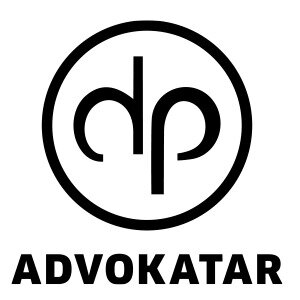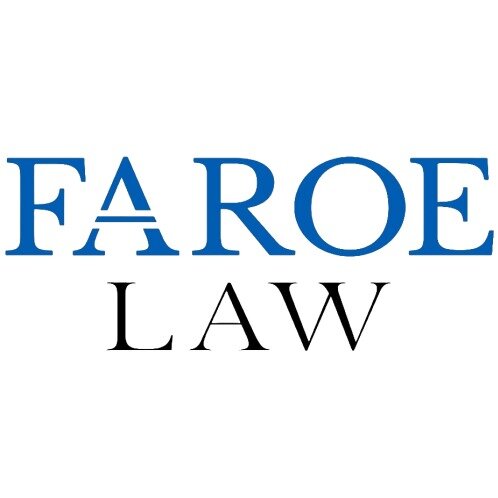Best New Business Formation Lawyers in Faroe Islands
Share your needs with us, get contacted by law firms.
Free. Takes 2 min.
Or refine your search by selecting a city:
List of the best lawyers in Faroe Islands
About New Business Formation Law in Faroe Islands
New Business Formation in the Faroe Islands is a process governed by local laws and regulations that provide the framework for legally establishing various business entities. These can include sole proprietorships, partnerships, limited liability companies (LLCs), and more. The process aims to ensure that businesses operate within the regulatory requirements, fostering a fair and competitive economic environment. The Faroese authorities regularly update business laws to enhance entrepreneurship and economic growth while providing legal structures to protect both business owners and consumers.
Why You May Need a Lawyer
Navigating the legal processes involved in new business formation can be intricate and often requires a nuanced understanding of the legal landscape. You might need a lawyer in situations such as:
- Understanding the type of business entity that best suits your objectives and liabilities.
- Assisting in drafting and reviewing necessary documentation, such as articles of association and partnership agreements.
- Ensuring compliance with local regulatory requirements, tax obligations, and obtaining necessary permits and licenses.
- Protecting your intellectual property and contract law matters.
- Advising on employment law if hiring staff.
- Facilitating negotiations and mediations in case of disputes.
Legal advice can help prevent costly mistakes and ensure that the business is set up correctly from the outset.
Local Laws Overview
The key legal considerations and regulatory requirements that are particularly pertinent to New Business Formation in Faroe Islands include:
- Business Types and Registration: Legal recognition and conditions attached to various business types, such as sole proprietorships, partnerships, and limited liability companies.
- Corporate Taxation: Comprehension of corporate taxation rates, obligations, and tax filing requirements specific to the Faroe Islands.
- Labor Laws: Regulations surrounding hiring practices, employee rights, and employment contracts.
- Environmental and Industry-Specific Regulations: Compliance with environmental laws and any specific regulations applicable to various industries, such as fishing and technology.
- Permit and Licensing Requirements: Guideline for acquiring the permits and licenses necessary for certain business activities.
Staying informed about these laws is crucial for maintaining legal operating status and avoiding potential infractions.
Frequently Asked Questions
What is the first step to starting a business in the Faroe Islands?
The initial step is deciding on the type of business entity that aligns with your goals and liability comfort. Then, you must register the business with the Faroese Business Registry.
How long does it take to register a business entity?
The registration time can vary depending on the complexity of the business structure and the completeness of the application, but it typically takes a few weeks.
Are there specific industries with more stringent regulations?
Yes, industries such as fishing, shipping, and technology may have additional regulations due to their economic importance and potential environmental impacts.
What are the corporate tax obligations for a new business?
Businesses must pay corporate taxes as stipulated by Faroese law. It's advisable to consult with a tax advisor for specific rates and obligations.
Do I need a special permit to start a business?
Certain types of businesses may require specific licenses or permits, which are defined by local regulations and can vary by industry.
Can foreign nationals start a business in the Faroe Islands?
Yes, foreign nationals can register businesses, but they must comply with additional regulations regarding residency and investment.
What legal protections exist for my intellectual property?
The Faroe Islands have laws in place to protect intellectual property, and registering trademarks or copyrights may be necessary to ensure protection.
How do I hire employees for my new business?
Complying with Faroese labor laws is essential, which include drafting employment contracts and ensuring worker rights and benefits are upheld.
What kind of legal documentation is needed to form a business?
Common documents include the articles of association, partnership agreements, and various compliance forms specific to the business type.
Is there support for startups and entrepreneurs?
Yes, the Faroese government and various institutions offer support programs and initiatives for startups and entrepreneurs aiming to bolster economic development.
Additional Resources
Here are some helpful resources for anyone seeking further information or aid in establishing a new business in the Faroe Islands:
- Faroese Business Registry: For up-to-date information on business registration and requirements.
- Tax Authority: Guidance on tax rates, obligations, and filing procedures.
- Entrepreneurial Support Initiatives: Various government-backed resources aimed at supporting new enterprises.
- Legal Assistance Services: Access to a network of legal professionals specializing in business law.
Next Steps
If you believe you need legal assistance in new business formation, consider the following steps:
- Research: Collect information on your legal needs and possible legal advisors.
- Consult Legal Professionals: Reach out to a lawyer or legal service specializing in Faroese business law for guidance.
- Prepare Required Documentation: Work with your legal advisor to compile and complete all necessary legal documents and registrations.
- Follow Legal Processes: Ensure all steps are properly followed to secure a successful business formation, tailored to Faroese regulations.
Taking these steps can help guide you through the process efficiently and can provide the necessary legal frameworks for a successful business endeavor in the Faroe Islands.
Lawzana helps you find the best lawyers and law firms in Faroe Islands through a curated and pre-screened list of qualified legal professionals. Our platform offers rankings and detailed profiles of attorneys and law firms, allowing you to compare based on practice areas, including New Business Formation, experience, and client feedback.
Each profile includes a description of the firm's areas of practice, client reviews, team members and partners, year of establishment, spoken languages, office locations, contact information, social media presence, and any published articles or resources. Most firms on our platform speak English and are experienced in both local and international legal matters.
Get a quote from top-rated law firms in Faroe Islands — quickly, securely, and without unnecessary hassle.
Disclaimer:
The information provided on this page is for general informational purposes only and does not constitute legal advice. While we strive to ensure the accuracy and relevance of the content, legal information may change over time, and interpretations of the law can vary. You should always consult with a qualified legal professional for advice specific to your situation.
We disclaim all liability for actions taken or not taken based on the content of this page. If you believe any information is incorrect or outdated, please contact us, and we will review and update it where appropriate.
Browse new business formation law firms by city in Faroe Islands
Refine your search by selecting a city.













